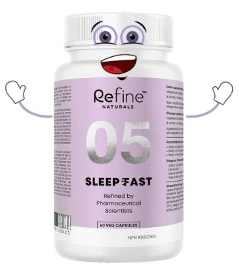Deciphering a Probiotic Label
When you are buying a probiotic product, it is important to know what to look for in the label. It helps you to make an informed decision on choosing a right product. In this blog we will share some of the insights on what you should look for on a probiotic label.

What should you look for on a probiotic label?
- What is the minimum number of colony forming units (CFUs) per serving size?
The potency of probiotics is measured in colony forming units (CFU). CFUs are determined by allowing the organism to grow on appropriate media under controlled conditions, and then counting the number of colonies present. Typical counts for a supplement product may be in the range of 3-10 billion CFUs per serving. CFU listed is usually a total count, although count for each strain is preferred. CFU listed on the product label should be equal to the amount shown to be beneficial in human studies.
- Potency should be guaranteed until expiration date for each strain (species).
Because not all the bacteria will remain viable when they arrive at their intended destination in the gut, manufactures tend to begin with higher doses of probiotic bacteria than is required to provide benefits. Plus, if an expiration date is specified on the label, the CFU count must reflect the number remaining at the end of that expiration date. Avoid products stating CFU “At time of manufacture” – such labeling does not account for decline of CFU during storage.
- Proper storage conditions should be listed on the label.
Proper storage conditions should be followed during all stages of the distribution chain. Is the product testing at full potency under real world conditions at expiration date? Consumers need to know how to handle and store the product.
- Microorganisms should be identified by genus and strain.
When reading a bacterial name there are three components:

The genus is a very broad category that has hundreds of species within it. When labeling the species, it narrows it down to one species, but even within that species, there are numerous strains. When labeling to the strain level, it tells you exactly what bacteria is in the product. Strain specificity is important as different strains within the same species can have different health benefits. Choose products that identify the strains of bacteria contained in their product. This is important, as each strain is genetically unique and the benefits of one strain may be very different than those of a similar sounding strain. When you see a product not labeled to the strain level, you cannot be sure what is actually in the product.
In summary. In order to identify high quality products that you can confidently say yes to, look for labels that show:
- Guaranteed CFU throughout the entirety of shelf life
- Genus, species and strain
- Proper storage conditions
At Refine Naturals, we realize that not all natural health supplements are created equal. We concentrate our expertise in choosing quality and evidence backed medicinal as well as non-medicinal ingredients. We keep our labels and marketing practices compliant to advertising standards, so as to never mislead consumers in their decision making.
At Refine Naturals: We believe “You Deserve Better than FINE!”




